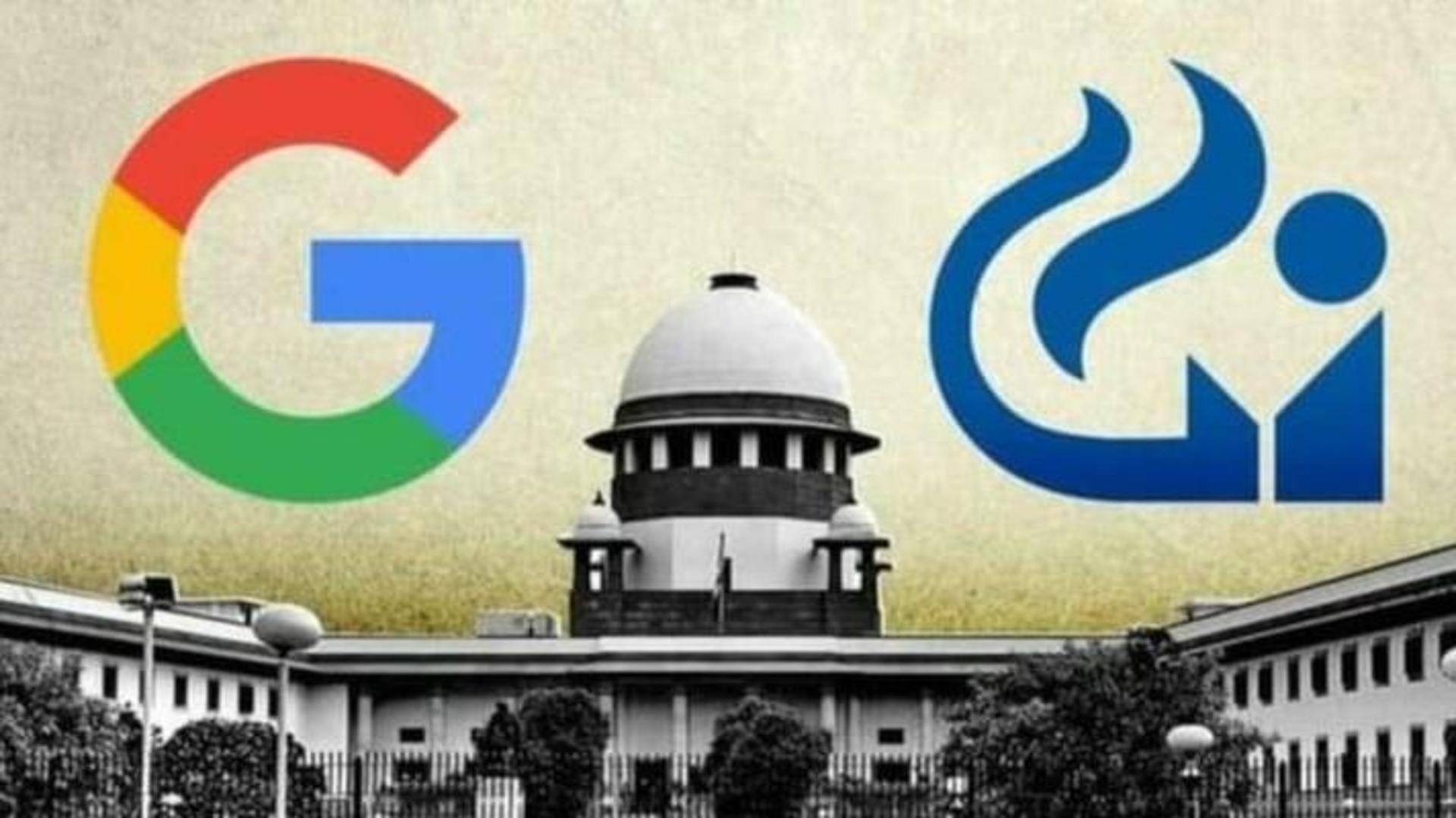
Google withdraws SC appeal against NCLAT order: Here's why
What's the story
The Supreme Court of India was supposed to hear Google's appeal against a National Company Law Appellate Tribunal (NCLAT) order today. The tech giant, however, made a U-turn and withdrew the appeal. The NCLAT order in question refused to stay the Competition Commission of India's (CCI) penalty of Rs. 936.44 crore on Google. So why did Google withdraw the appeal?
Context
Why does this story matter?
Google's fight against India's competition watchdog has been going on for a while. In October last year, the CCI imposed two penalties amounting to a total of Rs. 2,274 crore on the tech giant. One was related to the company abusing its dominant position in the Android ecosystem, while the other was for abusing its monopoly concerning the Play Store.
Reason
Google withdrew the appeal due to a legal technicality
The NCLAT, in January, denied Google an interim stay on the penalty imposed by the CCI in the Google Play Store policy case. Google approached the Supreme Court against this. The company's decision to withdraw the appeal might have surprised some. It is, however, a simple case of a legal technicality. Google withdrew the appeal because it became infructuous.
No purpose
NCLAT will begin the final hearing this week
In legal parlance, infructuous means "without any purpose or value." In Google's case, the appeal in front of the Supreme Court has no value. That is because the NCLAT is set to begin the final hearing in the Play Store policy case sometime this week. The company, if not satisfied with NCLAT's ruling after the final hearing, can approach the Supreme Court later.
Issue
Case is related to mandatory use of Google's billing system
The Play Store policy case pertains to Google's policy that requires app developers to mandatorily use Google Play Billing System (GBPS). They have to use it for app payments and certain in-app purchases made by users. Google also does not allow app developers to provide a direct link to an alternative payment method. Nor can they use encourage users to purchase outside the app.
CCI ruling
CCI directed Google to allow third-party billing services
CCI found Google's policies to be in violation of competition. The watchdog ruled mandatory usage of GBPS constituted the imposition of an unfair condition on app developers. Apart from imposing the penalty, the CCI also directed Google to allow app developers to use any third-party billing service. The regulatory authority also directed Google to let app developers freely communicate with users.
Android case
Google lost the Android case against CCI
Google would be hoping to win this case against CCI. Especially because it lost the Android case against India's competition watchdog. The company's appeal against CCI's order in the Supreme Court was unsuccessful. Since then, the tech giant has made sweeping changes to the Android ecosystem in the country. Another loss would mean more changes.